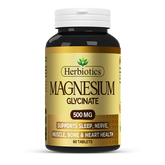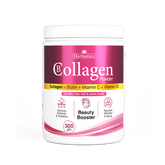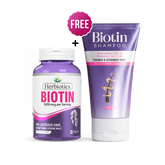Doctors Say These 5 Supplements Are a Waste of Money – Are You Taking Them?

In today's fast-paced world, dietary supplements have become an essential component of many people's health regimens. Millions of people rely on goods like multivitamins and herbal supplements to address nutritional deficiencies, boost immunity, and improve general health. However, not all supplements provide the advantages that they claim. In reality, numerous supplements have been ruled worthless by doctors and nutrition experts, resulting in a complete waste of money. If you're investing in these, you might want to reevaluate your options.
1. Multivitamins with Synthetic Fillers
A multivitamin is one of the most often used vitamins in almost every home. Many people assume that taking a multivitamin every day can enhance their health and prevent sickness, but data says otherwise. According to medical professionals, synthetic multivitamins frequently fail to deliver substantial health advantages since they contain separated nutrients rather than whole-food vitamins found in natural sources.
Most people with a well-balanced diet get enough vitamins and minerals from their food, making synthetic multivitamins unnecessary. Furthermore, low-quality formulas may contain fillers, artificial colouring, and superfluous ingredients that are more harmful than beneficial. If you're seeking for the best multivitamin in Pakistan, choose one made from natural ingredients and devoid of synthetic additives.
Furthermore, excessive use of synthetic vitamins can lead to toxicity and imbalances in the body. Fat-soluble vitamins A, D, E, and K, when consumed in large quantities, can accumulate in the body and cause major health problems. Instead of relying just on multivitamins, it is preferable to have a diet high in whole foods such as fruits, vegetables, whole grains, and lean meats.
2. Antioxidant Supplements
Antioxidants including vitamin C, vitamin E, and beta-carotene are well known for their capacity to combat oxidative stress and lower the risk of chronic illnesses. Consuming antioxidant-rich meals is good, however taking these nutrients in supplement form may not be as effective as previously thought.
High dosages of antioxidant supplements have been proven in studies to alter the body's natural defence systems and, in certain situations, increase the risk of certain illnesses, such as lung cancer in smokers. Rather of purchasing antioxidant tablets, it is preferable to eat a diet rich in fresh fruits, vegetables, nuts, and seeds, which provide a balanced and safe source of these nutrients.
Furthermore, the body has its own system for managing oxidative stress. Taking large dosages of antioxidant supplements might disrupt this natural equilibrium, often causing more damage than benefit. Natural sources such as berries, leafy greens, and nuts contain not just antioxidants, but also fibre, phytochemicals, and other critical elements for good health.
3. Herbal Supplements Without Scientific Backing
Herbal supplements have grown in popularity in recent years, with claims that they help boost immunity, aid digestion, and improve cognitive function. However, many of these supplements lack adequate scientific proof to substantiate their claimed advantages.
While certain herbs have been used in traditional medicine for centuries, the supplement business remains largely unregulated, raising worries about quality control, contamination, and inflated health claims. Some herbal supplements may even react badly with prescription drugs, resulting in unforeseen health effects. If you're looking for herbal supplements, make sure they've been clinically evaluated and come from a respected company.
Furthermore, some herbal supplements may have adverse effects that outweigh their claimed advantages. Certain herbs, for example, can cause liver damage, digestive problems, or allergic reactions if consumed in excess. Before adopting herbal supplements into your regular regimen, always consult with your healthcare professional.
4. Weight Loss Supplements
The weight reduction business is saturated with products that claim to burn fat, reduce hunger, and speed up metabolism. Unfortunately, most of these products do not live up to their claims. Many weight reduction products contain stimulants such as caffeine and green tea extract, which may provide short-term energy increases but have little to no long-term weight management advantages.
Doctors emphasise that weight reduction pills do not replace a healthy lifestyle. A balanced diet, frequent exercise, and mindful eating habits continue to be the most effective weight management strategies. Spending money on these supplements may result in disappointment and potential side effects such as elevated heart rate, anxiety, and digestive problems.
Furthermore, some weight reduction products include unregulated and hazardous components, such as prohibited drugs, which can pose serious health hazards. Many of these items do not go through thorough testing, making them unsuitable for long-term usage. Instead of aiming for quick fixes, sustained weight reduction may be achieved by steady and long-term lifestyle adjustments.
5. Detox Supplements
Detoxification pills promise to rid the body of toxins, improve digestion, and boost general health. Medical doctors, however, believe that the human body has its own built-in detoxification system—the liver and kidneys—that efficiently eliminate waste and poisons.
There is minimal scientific data to support the usefulness of detox pills. Many of these products contain diuretics, laxatives, or herbs that simply cause increased urination or bowel movements, giving the appearance of detoxification. Instead of spending money on these products, eating a nutrient-dense diet, staying hydrated, and limiting processed foods can all help the body's detoxification processes.
Another issue with detox supplements is that some may cause dehydration, electrolyte imbalances, and a reliance on laxatives, which can lead to long-term digestive problems. Rather from relying on detox drugs, eating fiber-rich meals, drinking plenty of water, and engaging in regular physical activity can help your body work properly.
What Should You Take Instead?
While many supplements fail to provide significant advantages, select high-quality products can really contribute to improved health. If you want to get the best multivitamin in Pakistan or the most effective herbal supplements, you must make an informed decision.
Herbiotics is a well-known brand in the business, offering a variety of high-quality, professionally validated supplements to promote general health. Whether you want critical vitamins and minerals or herbal formulas supported by scientific research, Herbiotics offers dependable solutions for consumers seeking to make educated health decisions.
Unlike many businesses that use synthetic chemicals, Herbiotics assures that their products are created with high-quality, natural ingredients, making them a popular choice among those who value their health and wellness. Choosing Herbiotics ensures that you are investing in supplements that are safe, effective, and scientifically proven.
Final Verdict
The supplement business is huge, with several items promising amazing results. However, as medical professionals point out, not all supplements are essential or helpful. Multivitamins containing synthetic fillers, antioxidant pills, unproven herbal supplements, weight loss pills, and detox solutions frequently fail to meet their claims, resulting in a waste of money.
If you are investing in supplements, choose those that are backed by research and manufactured by reputable brands. A nutrient-rich diet, frequent exercise, and healthy lifestyle practices will always be the cornerstone of excellent health. For individuals seeking for the best multivitamin in Pakistan or high-quality herbal supplements, picking well-researched and clinically tested choices, such as those given by Herbiotics, may be a better investment in your well-being.
Instead of falling for marketing tricks and unsubstantiated health claims, take charge of your health by making educated decisions. Supplements should enhance a healthy lifestyle, not replace it. Choose prudently and prioritise long-term well-being over passing fads.





